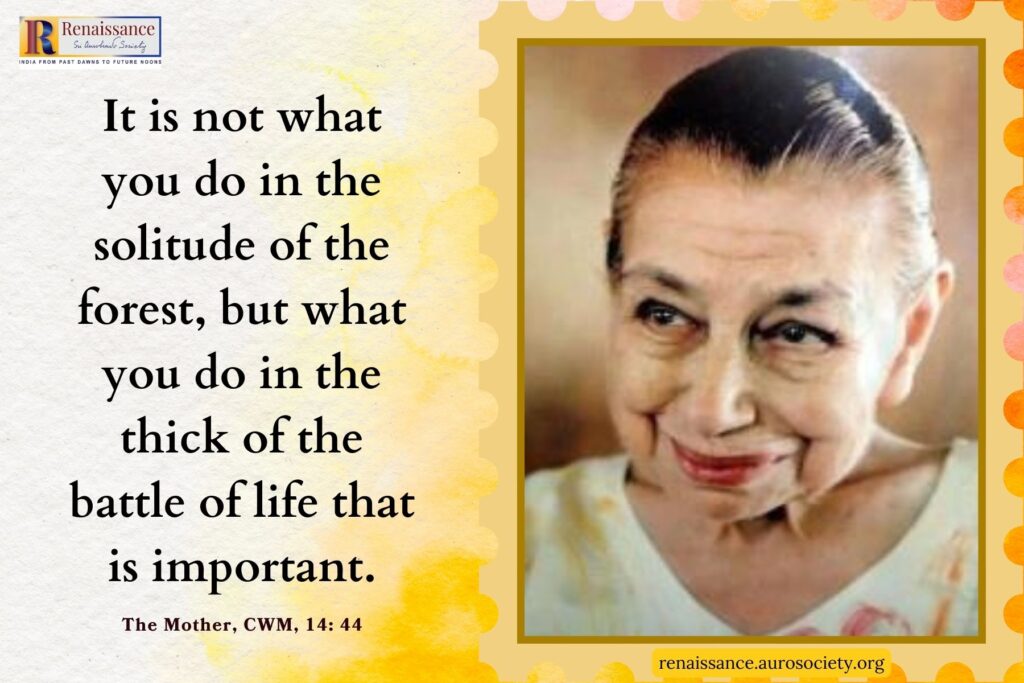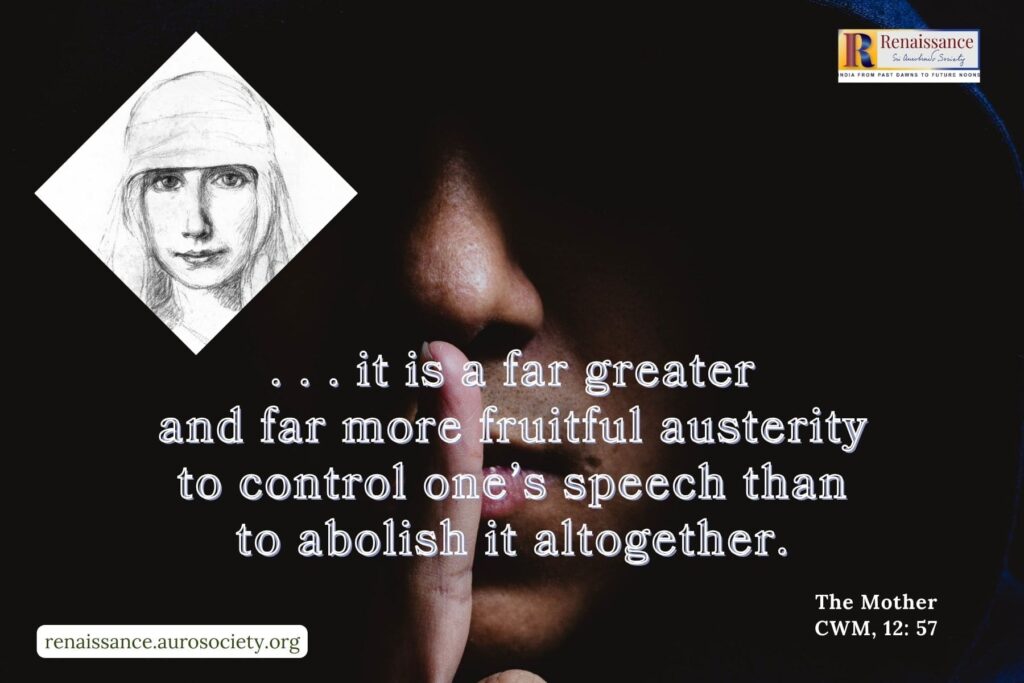Volume III, Issue 1
Author: Sri Aurobindo
Three Necessary Conditions
To be able to receive the Divine Power and let it act through you in the things of the outward life, there are three necessary conditions:
1) Quietude, equality—not to be disturbed by anything that happens, to keep the mind still and firm, seeing the play of forces, but itself tranquil.
2) Absolute faith—faith that what is for the best will happen, but also that if one can make oneself a true instrument, the fruit will be that which one’s will guided by the Divine Light sees as the thing to be done—kartavyaṁ karma.
3) Receptivity—the power to receive the Divine Force and to feel its presence and the presence of the Mother in it and allow it to work, guiding one’s sight and will and action. If this power and presence can be felt and this plasticity made the habit of the consciousness in action,—but plasticity to the Divine Force alone without bringing in any foreign element,—the eventual result is sure.
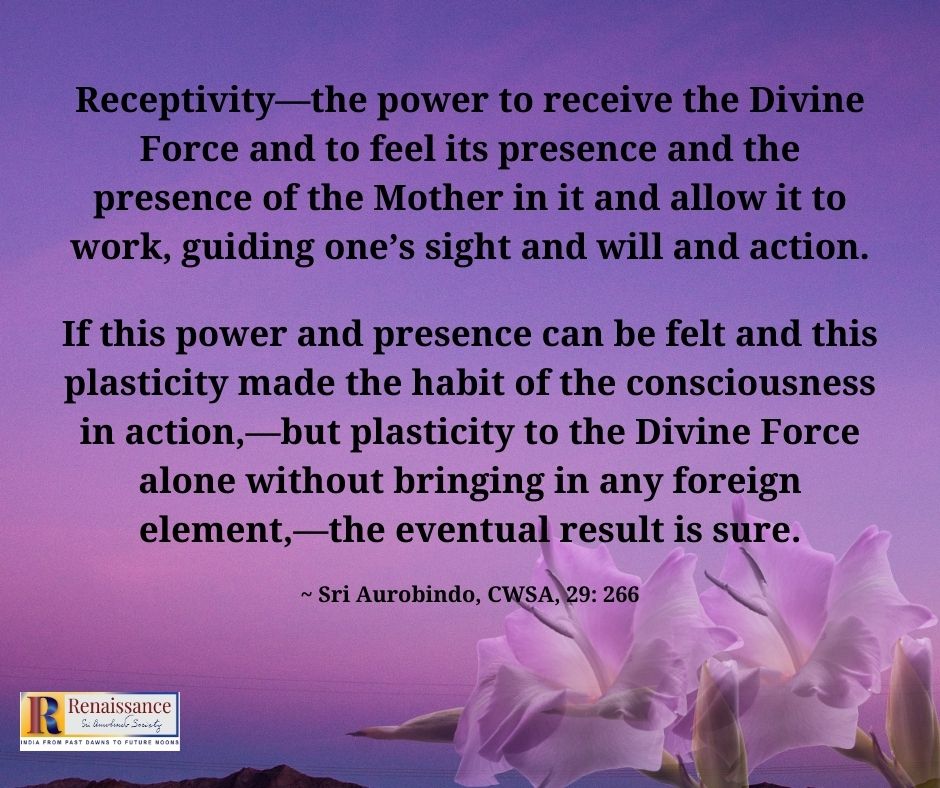
*****
To be an Instrument of the Divine
A receptive silence of the mind, an effacement of the mental ego and the reduction of the mental being to the position of a witness, a close contact with the Divine Power and an openness of the being to that one Influence and no other are the conditions for becoming an instrument of the Divine, moved by that and that only.
*****
Quietude and Restfulness in the Vital
The vital is the means of effectuation on the physical plane, so its action and energy are necessary for all work—without it, if the mind only drives without the cooperation and instrumentation of the vital, there is hard and disagreeable labour and effort with results which are usually not at all of the best kind.
The ideal state for work is when there is a natural concentration of the consciousness in the special energy, supported by an easeful rest and quiescence of the consciousness as a whole. Distraction of the mind by other activities disturbs this balance of ease and concentrated energy,—fatigue also disturbs or destroys it.
The first thing therefore that has to be done is to bring back the supporting restfulness and this is ordinarily done by cessation of work and repose. . .
It is the same principle as in sadhana—the reason why we want people to make the consciousness quiet so that the higher peace may come in and on the basis of that peace a new Force from above.
. . . Inspiration comes from above in answer to a state of concentration which is itself a call to it. Effort on the contrary fatigues the consciousness and therefore is not favourable to the best work; the only thing is that sometimes—by no means always—effort culminates in a pull for the inspiration which brings some answer, but it is not usually so good and effective an inspiration as that which comes when there is the easy and intense concentration of the energy in its work.
Effort and expenditure of energy are not necessarily the same thing; the best expenditure of energy is that which flows easily without effort at all—when the Inspiration or Force (any Force) works of itself and the mind and vital and even body are glowing instruments and the Force flows out in an intense and happy working—an almost labourless labour.
*****
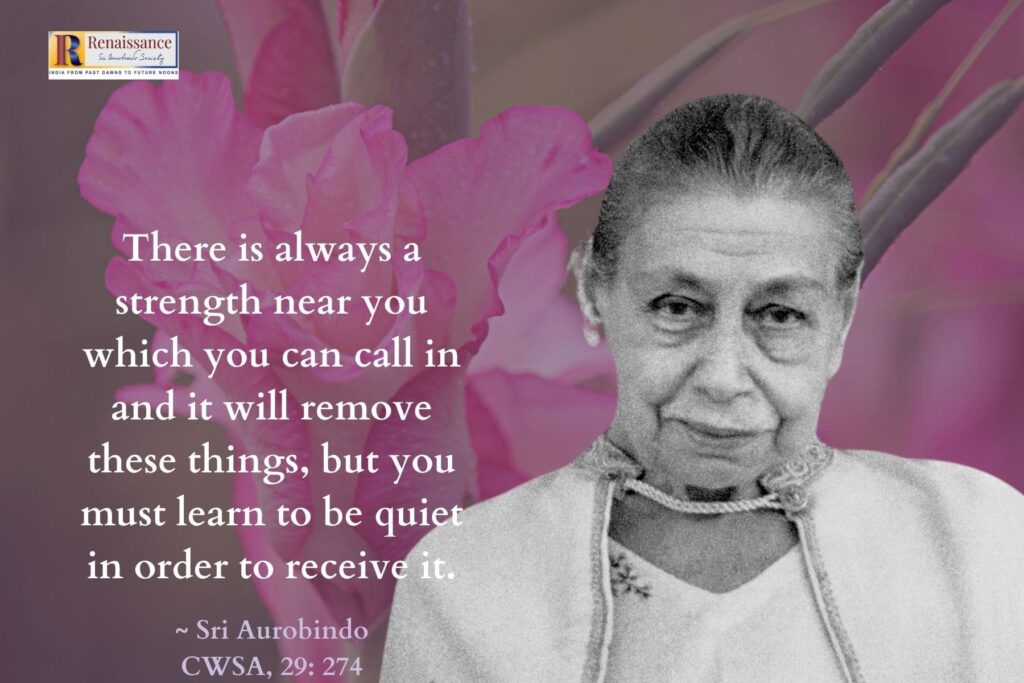
Do Not Overstrain
When you feel tired, don’t overstrain yourself but rest—doing only your ordinary work; restlessly doing something or other all the time is not the way to cure it. To be quiet without and within is what is needed when there is this sense of fatigue.
There is always a strength near you which you can call in and it will remove these things, but you must learn to be quiet in order to receive it.
Remember to Offer
It is a Force that comes and pushes to work and is as legitimately a part of the spiritual life as others. It is a special Energy that takes hold of the worker in the being and fulfils itself through him. To work with a full energy like this in one is quite salutary. The only thing is not to overdo it—that is to avoid any exhaustion or recoil to a fatigued inertia.
As for the dedication make the saṅkalpa always of offering it, remember and pray when you can (I mean in connection with the work). This is to fix a certain attitude. Afterwards, the Force can take advantage of this key to open the deeper dedication within.
*****
Inner Attitude
What is of first importance is not the religious or non-religious character of the work done, but the inner attitude in which it is done.
If the attitude is vital and not psychic, then one throws oneself out in the work and loses the inner contact. If it is psychic, the inner contact remains, the Force is felt supporting or doing the work and the sadhana progresses.
Don’t miss:
“Wherever there is a receptivity, the Force acts” – A Prisoner’s Transformation
*****
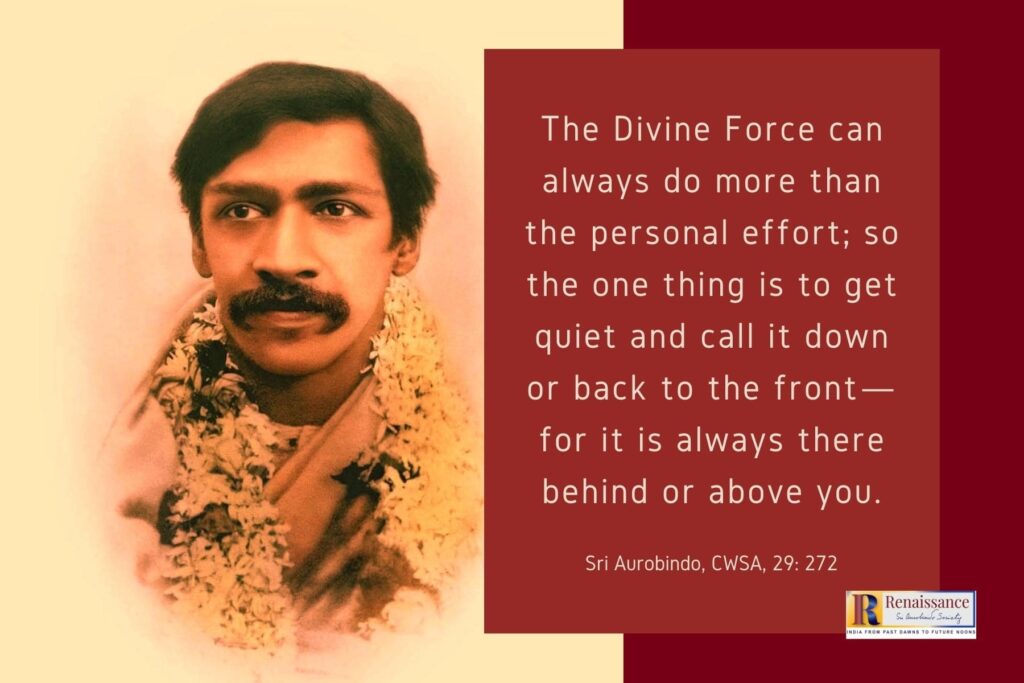
When you feel the better condition, the peace and force at work, it is better to allow the force to work, keeping yourself still and quiet, and not try to do things by the mind.
When there is the confusion or wrong condition, then you have to call down the quiet, to try to get back to the true position, not listening to the wrong thoughts but rejecting them. If you cannot do that at once, still remain as quiet as possible and aspire and offer yourself.
The Divine Force can always do more than the personal effort; so the one thing is to get quiet and call it down or back to the front—for it is always there behind or above you.
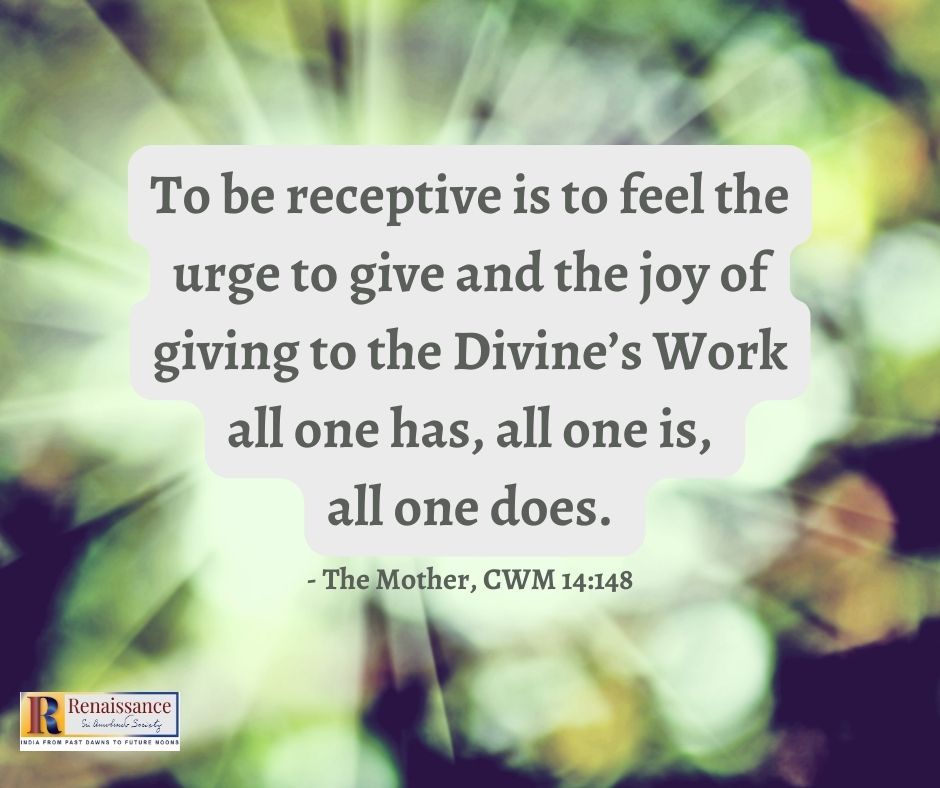
Excess of Effort
As for working, it depends on what you mean by the word.
Desire often leads either to excess of effort, meaning often much labour and a limited fruit, with strain, exhaustion and in case of difficulty or failure despondence, disbelief or revolt; or else it leads to pulling down the force.
That can be done, but except for the Yogically strong and experienced, it is not always safe, though it may be often very effective; not safe, first, because it may lead to violent reactions or bring down contrary or wrong or mixed forces which the sadhak is not experienced enough to distinguish from the true ones.
Or else it may substitute the sadhak’s own limited power of experience or mental and vital constructions for the free gift and the true leading of the Divine.
Cases differ, each has his own way of sadhana. But for you what I would recommend is constant openness, a quiet steady aspiration, no over-eagerness, a cheerful trust and patience.

For more practical guidance, click:
Sunlit Path

~ Design: Beloo Mehra and Biswajita Mohapatra


